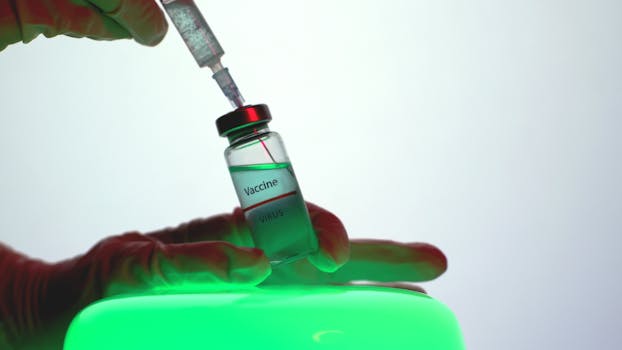
Essential Preventive Care: Vaccinations and Screenings You Shouldn’t Skip
Takeaways: Preventive care, including vaccinations and screenings, is key to avoiding serious health issues. Regular check-ups and staying up to date with recommended vaccinations can save lives, reduce healthcare costs, and improve quality of life. Prioritize your health by understanding the preventive measures you should take.
Preventive care is a critical component of maintaining overall health and wellness. By engaging in preventive measures such as vaccinations and screenings, individuals can protect themselves from various diseases and detect potential health issues early. This article will delve into the essential vaccinations and screenings that everyone should consider, regardless of age or health status.
The Importance of Preventive Care

In today’s fast-paced world, many people overlook the significance of preventive care, often prioritizing immediate health concerns over routine check-ups and vaccinations. However, it’s crucial to understand that preventive measures can save lives and significantly reduce healthcare costs over time.
Vaccinations: What You Need to Know

1. Childhood Vaccinations
Children are particularly vulnerable to infectious diseases, making vaccinations vital in their early years. The CDC recommends a series of immunizations, including:
- Diphtheria, Tetanus, and Pertussis (DTaP)
- Polio (IPV)
- Measles, Mumps, and Rubella (MMR)
- Haemophilus influenzae type b (Hib)
- Hepatitis B
- Varicella (chickenpox)
- Pneumococcal conjugate vaccine (PCV13)
- Influenza (annual)
2. Adult Vaccinations
As adults age, their immune system may weaken, making them susceptible to diseases. Key adult vaccinations include:
- Tetanus, Diphtheria, and Pertussis (Tdap) booster every 10 years
- Influenza (annual)
- Shingles (Zoster) vaccine for those over 50
- Pneumococcal vaccines for older adults
- COVID-19 vaccine and boosters as recommended
Screenings: Essential Tests You Shouldn’t Miss

1. Blood Pressure Screening
High blood pressure often has no clear symptoms, yet it can lead to serious health issues like heart disease and stroke. Adults should have their blood pressure checked at least once every two years.
2. Cholesterol Screening
High cholesterol can increase the risk of heart disease. Adults should start cholesterol screenings at age 20 and continue every 4-6 years, or more frequently if risk factors are present.
3. Cancer Screenings
Cancer screenings vary by age and risk factors but are crucial for early detection. Common screenings include:
- Breast cancer screening (mammograms) starting at age 40
- Cervical cancer screening (Pap tests) starting at age 21
- Colorectal cancer screening starting at age 45
- Prostate cancer screening discussions with healthcare providers
4. Diabetes Screening
Diabetes can lead to severe health complications if undiagnosed. Adults should get screened for diabetes at age 45, or earlier if they have risk factors.
Conclusion







